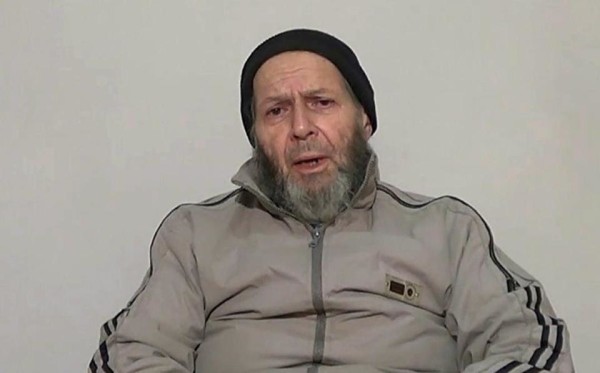
A video released anonymously to reporters in Pakistan shows Warren Weinstein, a US government contractor who was kidnapped more than two years ago, appealing to President Obama to negotiate a release.
A U.S. government contractor kidnapped by al-Qaida militants in Pakistan in 2011 has recorded a video message calling on the Obama administration to negotiate with his captors and saying he feels ‘‘totally abandoned and forgotten.’’
Warren Weinstein looked ashen and sounded lethargic as he pleaded for renewed interest in his case and asked the U.S. government to consider releasing al-Qaida militants in its custody. The 72-year-old development expert from Rockville, Md., began his address by urging President Barack Obama to consider negotiating with his captors.
‘‘You are now in your second term as president of the United States and that means that you can take hard decisions without worrying about reelection,’’ said Weinstein, who was recorded sitting against a white wall and wearing a gray tracksuit top and a black woolen hat. No one else appeared in the video.
The video, which included the yellow logo of As-Sahab, al-Qaida’s media production outlet, was sent in an anonymous email to several journalists who have reported from Afghanistan. Included were links to a handwritten note that purports to be from Weinstein, saying ‘‘Letter to Media’’ at the top. The note is dated Oct. 3. It is not clear when the video was made.
A State Department spokeswoman and a member of Weinstein’s family said Wednesday night that they had not independently received the note or video. The Washington Post provided a copy to both.
State Department spokeswoman Marie Harf later said that U.S. officials were ‘‘working hard to authenticate’’ the contents of the message.
‘‘We reiterate our call that Warren Weinstein be released and returned to his family,’’ she said in a statement. ‘‘Particularly during this holiday season — another one away from his family — our hopes and prayers are with him and those who love and miss him.’’
Al-Qaida leader Ayman al-Zawahri said in a statement issued in December 2011 that Weinstein would be freed if Washington stopped launching air strikes in Pakistan, Afghanistan, Somalia and Yemen. He also demanded the release of all imprisoned members of al-Qaida and the Taliban. The following year, Zawahri urged followers to kidnap Westerners to gain more leverage in al-Qaida’s bid to get prominent jihadists freed from U.S. custody. Among the top priorities for the group is the release of Sheikh Omar Abdel-Rahman, a blind Egyptian who was convicted of orchestrating the 1993 World Trade Center bombing.
The Obama administration has said it will not negotiate with al-Qaida for Weinstein’s release. The United States as a matter of policy generally does not negotiate with kidnappers, but the government devotes substantial resources to finding Americans kidnapped overseas.
The new video appeared to be the captive’s first proof of life since a video statement released in September 2012. In that statement, Weinstein appealed to Israel’s prime minister ‘‘as one Jew to another,’’ asking him to help build support to meet al-Qaida’s demands for his release.
Weinstein did not say what specific steps the Obama administration could take to secure his release. He said, however, that his captors have agreed to arrange for relatives to visit him in custody if the United States releases unspecified prisoners as part of a ‘‘quid pro quo.’’
Weinstein also addressed Secretary of State John Kerry, telling him his captors have kept him abreast of peace deals that the top U.S. diplomat has sought to broker. Weinstein said a ‘‘first step’’ to getting him released would require taking ‘‘action with respect to their people who are being held as prisoners.’’
‘‘If anyone in the Obama government can understand my predicament it is yourself,’’ Weinstein said. ‘‘I hope that one day soon I will be able to meet you as a free man and thank you for your efforts.’’
Weinstein appeared troubled that the media have not covered his case more extensively. The handwritten note pleaded with journalists to keep his case in the news, to ensure ‘‘that I am not forgotten and just become another statistic.’’
At the end of the video, he addressed his relatives, saying: ‘‘I would like them to know I love them very much and I think about each and every one of them every moment of every day.’’
Weinstein was the Pakistan director of J.E. Austin Associates, a USAID contractor, when he was taken hostage in Lahore, Pakistan, on Aug. 13, 2011.
Weinstein said in the video that he is in poor health, suffering from a heart condition and acute asthma.
‘‘The years have taken their toll,’’ he said.



Leave a reply